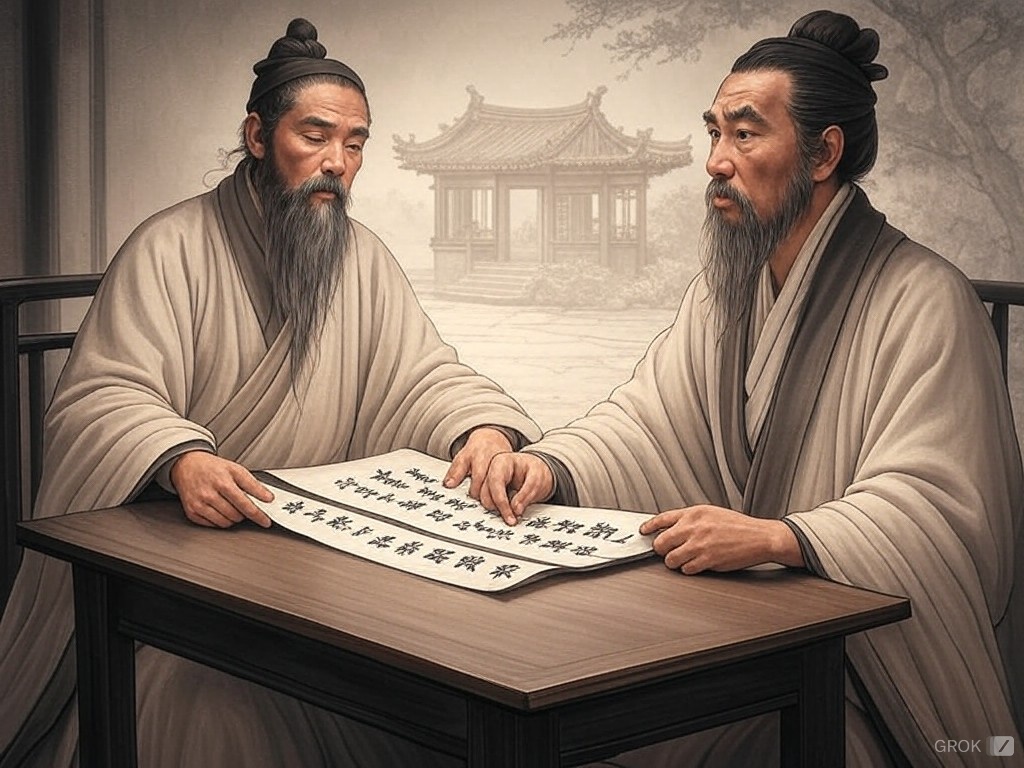"三心二意" (sān xīn èr yì) - Of Two Minds

To be of two minds; indecisive; irresolute; fickle.
Origins and Historical Context
The idiom "三心二意" (sān xīn èr yì) appears in various literary works, often used to depict characters struggling with choices or displaying a lack of commitment. One example is found in the Yuan Dynasty play Saving the Prostitute (救風塵) by Guan Hanqing (關漢卿), where it describes the wavering nature of a character.
The phrase itself is quite descriptive: "三" (sān) means three, "心" (xīn) means heart (mind), "二" (èr) means two, and "意" (yì) means intention (thought). Combining these, it literally suggests having three hearts and two intentions, implying a lack of focus and a tendency to change one's mind.
Meaning and Usage
"三心二意" describes a state of indecision, wavering between different options or lacking a firm commitment to a single course of action. It is often used to criticize someone for being unreliable or inconsistent.
-
Example (Choosing between jobs): “他同时收到了两家公司的聘用通知,一直在三心二意,不知道该选哪一个。” (“Tā tóngshí shōu dào le liǎng jiā gōngsī de pìn yòng tōngzhī, yīzhí zài sān xīn èr yì, bù zhīdào gāi xuǎn nǎ yī ge.”) – “He received job offers from two companies at the same time and has been of two minds, not knowing which one to choose.”
-
Example (In a relationship): “如果你对这段感情总是三心二意,最终只会伤害到彼此。” (“Rúguǒ nǐ duì zhè duàn gǎnqíng zǒng shì sān xīn èr yì, zuìzhōng zhǐ huì shānghài dào bǐcǐ.”) – “If you are always of two minds in this relationship, you will only end up hurting each other.”
Cultural Significance of Chéngyǔ (成语)
"三心二意" reflects the importance of:
- Decisiveness: It emphasizes the value of making clear decisions and sticking to them.
- Commitment: It highlights the importance of dedication and focus in achieving goals and maintaining relationships.
Synonyms and Related Concepts
- 犹豫不决 (yóu yù bù jué): To hesitate and be unable to make up one's mind.
- 举棋不定 (jǔ qí bù dìng): To hold a chess piece and not know where to place it; to be indecisive.
- 朝三暮四 (zhāo sān mù sì): Three in the morning and four in the evening; to change one's mind frequently; fickle.